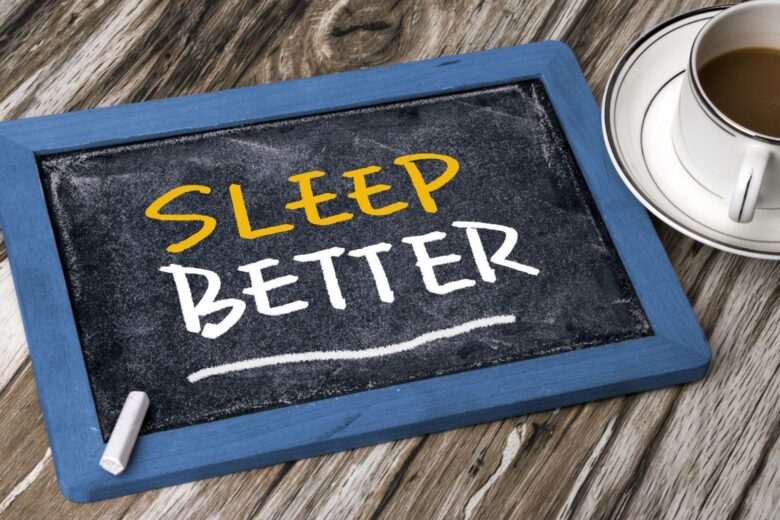In a world where the pursuit of a good night’s sleep has become as elusive as a fleeting dream, the spotlight is increasingly turning to testosterone therapy as a potential key to unlocking restful slumber. Many individuals struggle with sleep disturbances, often attributing their woes to stress, lifestyle, or age-related changes. However, emerging research suggests that testosterone levels may play a significant role in regulating our sleep patterns. This article explores the intricate relationship between testosterone therapy and improved sleep quality, delving into the science behind hormonal balance and offering insights into how this treatment might offer a solution for those yearning for restorative rest. As we navigate the complexities of sleep health and hormone treatment, we aim to shed light on this innovative approach and its potential implications for a better, more rejuvenating night’s sleep.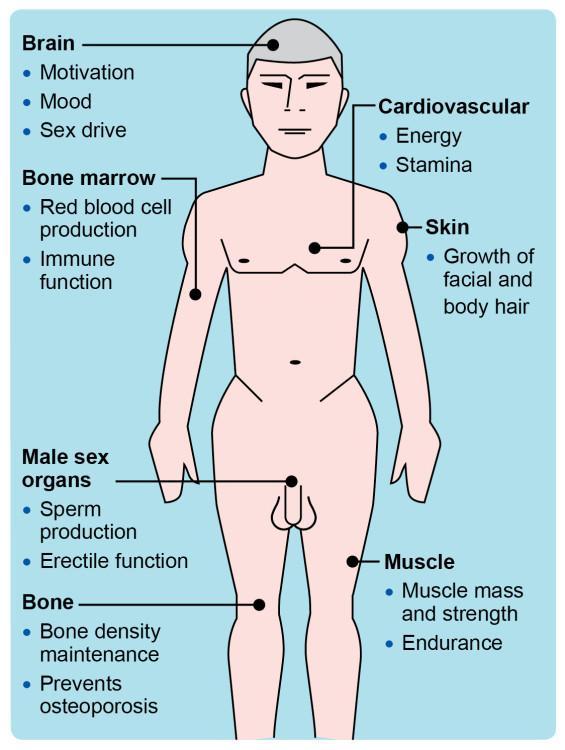
Understanding the Connection Between Testosterone and Sleep Quality
Recent studies have demonstrated a significant link between testosterone levels and sleep quality, indicating that hormonal balance plays a crucial role in achieving restful slumber. Testosterone is not only essential for muscle mass and libido but also for regulating various bodily functions, including the sleep-wake cycle. Low testosterone levels can contribute to sleep disturbances, often leading to issues such as insomnia, sleep apnea, and reduced sleep efficiency. This hormone influences the regulation of REM sleep, a crucial phase for cognitive function and overall well-being, highlighting the importance of maintaining optimal testosterone levels for sound sleep.
When considering testosterone therapy as a means to improve sleep, it is essential to recognize its potential benefits alongside the risks. Many individuals experiencing sleep issues linked to low testosterone may find relief through testosterone replacement therapy (TRT). However, it’s vital to consult healthcare professionals for personalized assessment and treatment options. Below are some potential benefits and considerations regarding testosterone therapy and sleep:
| Benefits | Considerations |
|---|---|
| Improved sleep quality | Risk of side effects, such as acne or mood swings |
| Increased energy levels | Need for regular monitoring of hormone levels |
| Enhancement of REM sleep | Possibility of exacerbating sleep apnea |
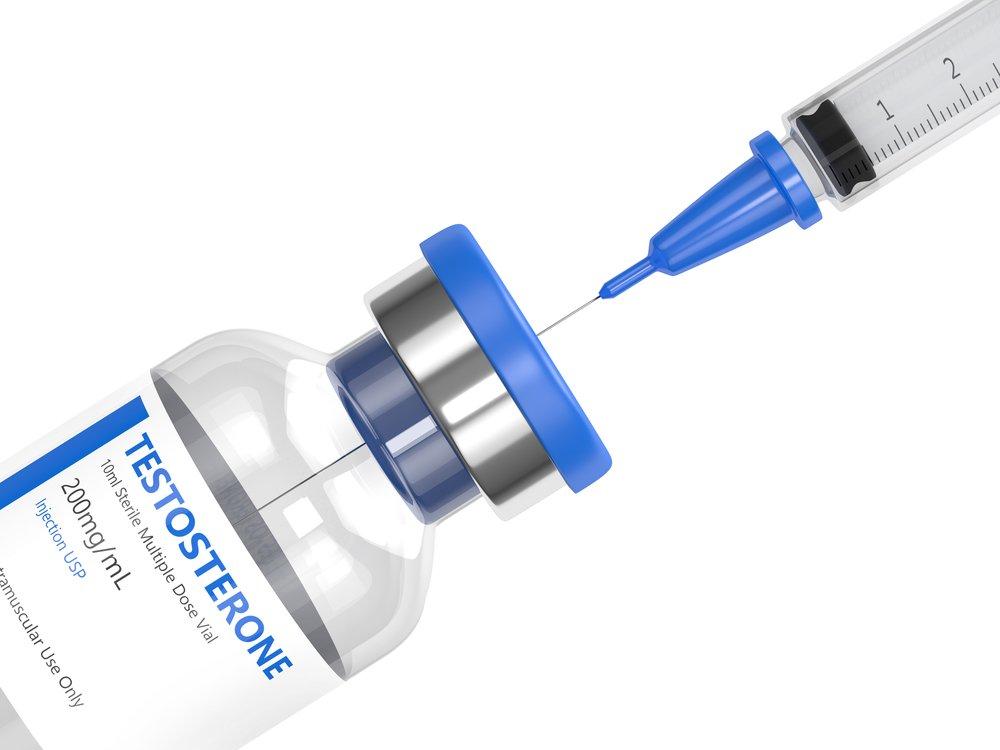
The Science Behind Hormones: How Testosterone Influences Sleep Patterns
Testosterone plays a significant role in regulating various physiological processes, one of which includes the complex mechanisms of sleep. Research indicates that individuals with low testosterone levels often experience disrupted sleep patterns, characterized by insomnia or poor sleep quality. This disruption can lead to a decrease in REM (Rapid Eye Movement) sleep, which is essential for restorative rest and overall well-being. By optimizing testosterone levels through therapy, men may experience an improvement in their sleep quality, potentially resulting in:
- Improved Sleep Duration: Increased testosterone levels are associated with longer periods of undisturbed sleep.
- Enhanced REM Sleep: A higher testosterone concentration can promote deeper and more restorative REM cycles.
- Decreased Sleep Apnea Symptoms: Testosterone therapy can alleviate symptoms of obstructive sleep apnea, leading to better overall sleep health.
The connection between testosterone and sleep is further supported by findings that show fluctuations in testosterone levels throughout the day correlate with sleep patterns. For instance, testosterone typically peaks in the morning and gradually declines throughout the day, mirroring natural circadian rhythms. This synchronization suggests a delicate interplay where adequate testosterone levels not only facilitate better sleep but also support daytime alertness and energy levels. The following table summarizes key findings:
| Factor | Impact of Testosterone |
|---|---|
| Sleep Duration | Longer sleep experienced with optimal testosterone levels |
| Sleep Quality | Reduced disturbances and improved REM cycles |
| Daytime Functionality | Greater energy and alertness during the day |
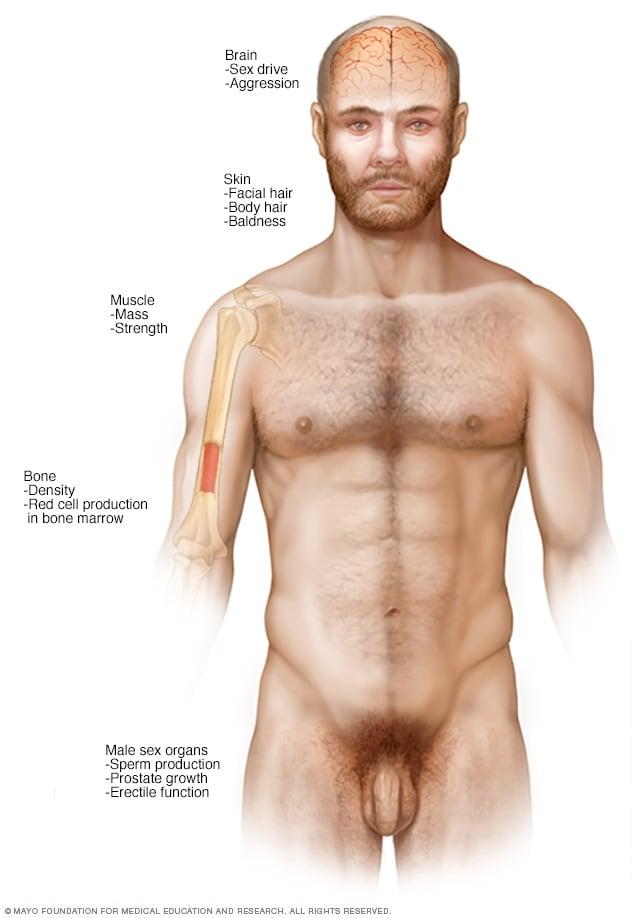
Identifying Symptoms of Low Testosterone and Poor Sleep
Low testosterone levels can contribute to a myriad of health issues, including sleep disturbances. Individuals experiencing this condition may notice a variety of symptoms that signal a hormonal imbalance. Common signs include:
- Fatigue: Overwhelming fatigue not relieved by sleep can indicate low testosterone.
- Decreased libido: A noticeable drop in sexual desire often coincides with hormonal deficiencies.
- Difficulty concentrating: Mental fog and difficulty focusing can disrupt daily activities.
- Changes in mood: Increased irritability or feelings of depression may be linked to low testosterone levels.
Sleep quality itself can also suffer due to these hormonal imbalances. Reduced levels of testosterone may lead to:
- Insomnia: Trouble falling or staying asleep can stem from low testosterone levels.
- Increased wakefulness: Frequent awakenings during the night disrupt restorative sleep cycles.
- Anxiety: Heightened levels of stress and anxiety can be exacerbated by poor sleep, creating a vicious cycle.
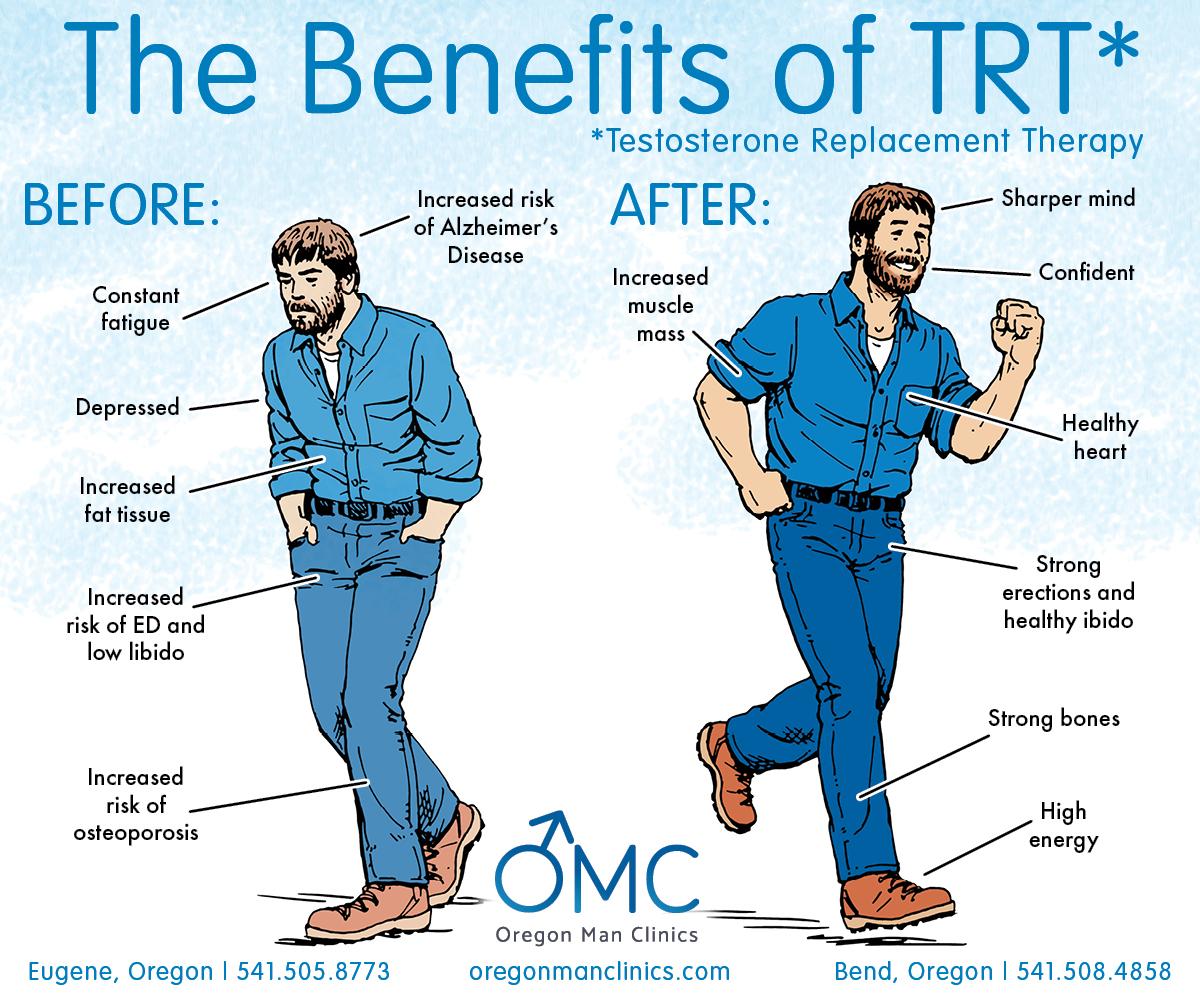
Exploring Different Types of Testosterone Therapy
When it comes to managing testosterone levels, individuals have a variety of therapy options available to them. Each type of therapy offers unique benefits and potential drawbacks, making it crucial to explore what’s best suited for individual needs. Common forms of testosterone therapy include:
- Injections: These deliver testosterone directly into the bloodstream and can be administered on a weekly or bi-weekly basis.
- Topical gels or patches: These allow for absorption through the skin, providing a more stable release of testosterone over time.
- Pellets: Small implanted pellets release testosterone steadily over several months and require a minor surgical procedure.
- Oral tablets: Convenient but often less effective due to liver processing.
Understanding the specifics of each type of therapy can help patients align their sleep quality goals with their treatment. Many studies suggest that restoring testosterone levels through therapy can significantly improve sleep patterns, leading to better overall health. Here’s a brief comparison of how different therapies may impact sleep:
| Therapy Type | Potential Sleep Benefits | Considerations |
|---|---|---|
| Injections | Quick boost in energy; potential for deeper sleep | Requires regular visits to a healthcare provider |
| Topical Gels/Patches | Even hormone levels may lead to better sleep quality | May cause skin irritation for some users |
| Pellets | Stable testosterone levels ensure restful sleep | Invasive procedure needed; risk of infection |
| Oral Tablets | Convenient option, may help with sleep indirectly | Less effective due to first-pass metabolism |
Consulting Healthcare Professionals: What to Discuss Before Starting Therapy
Before embarking on testosterone therapy, it’s crucial to engage in an open dialogue with your healthcare provider. This conversation should encompass specific areas pertinent to your health and lifestyle, ensuring that the treatment aligns with your individual needs. Consider discussing:
- Your symptoms: Describe the quality of your sleep and any other related issues.
- Medical history: Share your complete medical background, including existing conditions.
- Potential benefits and risks: Understand what positive outcomes you might expect and any possible side effects.
- Monitoring plan: Establish how your progress will be tracked over time.
In addition to these initial discussions, it’s essential to consider the practical implications of initiating therapy. Consult your healthcare professional about lifestyle modifications that can complement the treatment, such as:
| Modification | Benefits |
|---|---|
| Regular exercise | Improves sleep quality and boosts testosterone levels naturally. |
| Balanced diet | Supports hormone balance and overall health. |
| Stress management | Reduces cortisol levels, promoting better sleep. |
Discussing these components with your healthcare provider can facilitate a tailored approach to testosterone therapy, enhancing the likelihood of improved sleep quality and overall well-being.
Implementing Lifestyle Changes to Enhance Sleep Alongside Therapy
Integrating lifestyle changes can significantly amplify the benefits of testosterone therapy, particularly when it comes to improving sleep quality. Establishing a consistent sleep routine is crucial; going to bed and waking up at the same time each day fosters a natural circadian rhythm. Additionally, creating an inviting sleep environment plays a pivotal role. Consider the following adjustments:
- Moderating Light Exposure: Limit screen time before bed and opt for dim lighting.
- Maintaining Optimal Room Temperature: A cooler room can enhance sleep comfort.
- Eliminating Noises: Use earplugs or white noise machines to mitigate disturbances.
Nutrition and physical activity also remain key components in enhancing your sleep quality while undergoing testosterone therapy. Consuming a balanced diet rich in antioxidants can positively impact sleep patterns. Particularly beneficial foods include:
| Food Category | Benefits for Sleep |
|---|---|
| Fruits | Rich in vitamins, promote relaxation. |
| Nuts | High in magnesium, aids muscle relaxation. |
| Whole Grains | Support serotonin production, enhancing mood. |
Alongside dietary changes, regular physical activity can further bolster hormone regulation and sleep quality. Engaging in moderate exercise, even just a 30-minute walk, can help reduce anxiety and promote deeper sleep. Striking a balance between activity and rest is essential; therefore, listen to your body’s signals to avoid overexertion.
Monitoring Progress: Evaluating the Effects of Testosterone on Sleep Over Time
As individuals embark on testosterone therapy to enhance their sleep quality, it is crucial to systematically track and evaluate the changes over time. A personalized monitoring plan can help identify the nuanced effects of testosterone on sleep patterns. Key aspects to consider in this evaluation include:
- Sleep duration: Measuring the total hours of restful sleep attained each night.
- Sleep quality: Analyzing subjective experiences of sleep through journaling or sleep apps.
- Daytime fatigue levels: Assessing energy levels throughout the day to determine if improvements correlate with therapy.
- Sleep disruptions: Tracking the frequency of awakenings during the night.
Furthermore, leveraging objective data through sleep studies can offer invaluable insights. These studies track various metrics such as REM cycles and sleep latency, providing a comprehensive picture of sleep health. Tracking these elements before and during therapy can reveal not just immediate effects, but also longer-term changes in sleep architecture, enabling individuals to make informed decisions about their treatment. The following table outlines a hypothetical series of observations to illustrate this tracking approach:
| Weeks on Therapy | Average Sleep Duration (hours) | Total Awakenings | Daytime Fatigue (1-10) |
|---|---|---|---|
| 1 | 6.5 | 4 | 8 |
| 4 | 7.2 | 2 | 6 |
| 8 | 7.5 | 1 | 4 |
| 12 | 8.0 | 0 | 2 |
Q&A
Q&A: Exploring Testosterone Therapy for Better Sleep
Q1: What is testosterone therapy, and how does it relate to sleep?
A1: Testosterone therapy involves the administration of testosterone, a key hormone in the body, to help address deficiencies. Sleep quality is often closely tied to hormonal balance, and low testosterone levels can lead to sleep disturbances such as insomnia or disrupted REM cycles. As researchers delve deeper into the relationship between hormones and sleep, some suggest that correcting testosterone deficiency could pave the way for improved sleep quality.
Q2: Who might benefit from testosterone therapy to improve sleep?
A2: Individuals with clinically low testosterone levels—often due to age, medical conditions, or other health issues—might find relief through therapy. Men over 30 are commonly affected, as testosterone levels naturally decline with age. However, some women may experience similar issues, especially during menopause. A healthcare provider’s assessment is essential for determining whether testosterone therapy is appropriate and safe for specific individuals.
Q3: What are the potential benefits of testosterone therapy on sleep?
A3: Early studies indicate that testosterone therapy may help regulate sleep patterns, enhance overall sleep quality, and reduce instances of wakefulness during the night. Improved testosterone levels have been linked to a decrease in sleep apnea symptoms, increased REM sleep, and a reduction in the feeling of fatigue. For many, better sleep can also translate to enhanced mood and improved cognitive function during waking hours.
Q4: Are there any risks associated with testosterone therapy?
A4: Yes, while some experience benefits, testosterone therapy is not without risks. Potential side effects can include acne, fluid retention, increased red blood cell count, and in some cases, exacerbation of sleep apnea. There are also concerns about the potential impact on cardiovascular health and prostate issues for men. It’s vital for individuals to consult with a healthcare provider to weigh the pros and cons before starting therapy.
Q5: What are the alternatives to testosterone therapy for improving sleep?
A5: If testosterone therapy is not deemed necessary or appropriate, other strategies can help enhance sleep quality. Lifestyle changes such as maintaining a consistent sleep schedule, creating a restful bedroom environment, practicing relaxation techniques like meditation or yoga, and avoiding stimulants can markedly improve sleep. Additionally, addressing underlying health issues, such as obesity or depression, can also contribute to better sleep outcomes.
Q6: How can someone determine if they have low testosterone levels?
A6: The most reliable way to determine testosterone levels is through a blood test, which healthcare providers often recommend if symptoms suggest low testosterone, such as persistent fatigue, reduced libido, mood fluctuations, or noticeable weight gain. It’s important for individuals to discuss these symptoms openly with a physician, who can then assess the need for testing and diagnose any potential hormonal imbalances.
Q7: What should individuals consider before starting testosterone therapy specifically for sleep improvement?
A7: Individuals should first undergo a thorough evaluation by a healthcare provider. It’s crucial to discuss current health conditions, medications, and family medical history. Doctors typically follow evidence-based guidelines and may consider a referral to a specialist if necessary. Setting realistic expectations and understanding that therapy is just one tool among many for improving sleep can also foster a more holistic approach to well-being.
Q8: what is the takeaway about testosterone therapy and sleep?
A8: Testosterone therapy may offer a potential avenue for improving sleep quality in those with low testosterone levels. However, it’s essential to approach this option carefully, considering both the benefits and potential risks. Engaging in open dialogue with healthcare professionals and exploring complementary lifestyle changes can be pivotal in cultivating better sleep hygiene for a more revitalized life.
In Summary
the intricate dance between hormones and sleep cannot be overstated. While testosterone therapy presents a promising avenue for those grappling with sleep disturbances, it is essential to approach this option with careful consideration and professional guidance. Individual experiences will vary, influenced by a myriad of biological, psychological, and lifestyle factors. As the dialogue surrounding hormonal health continues to evolve, embracing a holistic approach to sleep — one that encompasses healthy habits, nutritional balance, and mental well-being — will serve as a foundation for restful nights and vibrant days. Ultimately, taking charge of your sleep health might just be the key to unlocking a better quality of life. Dream on.

